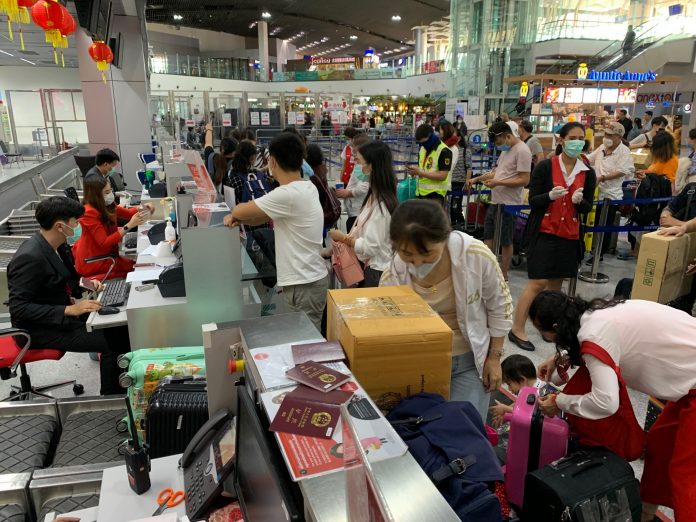JAKARTA/HANOI (Reuters) – The coronavirus outbreak has stoked a wave of anti-China sentiment around the globe, from shops barring entry to Chinese tourists, online vitriol mocking the country’s exotic meat trade and surprise health checks on foreign workers.
The virus, which originated in China, has spread to more than a dozen countries, many of them in Southeast Asia which has sensitive relations with China amid concerns about Beijing’s vast infrastructure spending and political clout in the region and sovereignty disputes in the South China Sea.
Authorities and schools in Toronto, Canada, were moved to warn against discrimination towards Chinese Canadians, while in Europe there was anecdotal evidence of Chinese residents facing prejudice in the street, and hostile newspaper headlines.
“Orientalist assumptions plus political distrust plus health concerns are a pretty powerful combination,” said Charlotte Setijadi, and anthropologist who teaches at Singapore Management University.
Chinese authorities have said the virus emerged from a market selling illegally traded wildlife, giving rise to widespread social media mocking of China’s demand for exotic delicacies and ingredients for traditional medicine.
“Stop eating bats,” said one Twitter user in Thailand, the top destination for Chinese tourists. “Not surprising that the Chinese are making new diseases,” another Thai user posted alongside a video clip that showed a man eating raw meat.
“Because your country is beginning (to) spread disease…we do not accept to serve the guest from China,” read a sign in English outside the Danang Riverside hotel in the central Vietnamese city of the same name. Authorities later told the hotel to remove the sign, its manager said in a Facebook post.
Vietnam, which was under Chinese occupation centuries ago and contests Beijing’s sweeping maritime claims in the South China Sea, has particularly fraught relations with China.
But it is not alone in the region.
Over 60% of respondents to a poll of Southeast Asian officials, academics and other professionals said in a survey this month that they distrusted China. Nearly 40% said they thought China was “a revisionist power and intends to turn Southeast Asia into its sphere of influence”. The survey did not mention the virus.
The Chinese government said it was determined to contain an epidemic it called a “common challenge facing mankind”.
“Prejudice and narrow-minded words are no good at all,” the Foreign Ministry said in a statement.
TRAVEL BANS
Many countries have imposed visa restrictions on travellers from Hubei province – the epicentre of the virus – while some airlines have suspended all direct flights to mainland China.
But this is not enough for hundreds of thousands of people in South Korea and Malaysia who have signed online petitions urging authorities to ban Chinese from visiting their countries.
In an unusual move, Samal Island in the southern Philippines on Thursday banned not just tourists from China but from all countries affected by the coronavirus to the popular beach spot.
China’s boom in outbound tourism has created a pattern of international travel unprecedented in human history and driven the growth of businesses to serve Chinese travellers around the world. From a trickle in the 1980s, Chinese tourist numbers grew to estimates of more than 160 million in 2019.
In France, whose capital Paris is a major draw for Chinese visitors and which has a significant Chinese population, local Asians created a Twitter hashtag #Jenesuispasunvirus (“I am not a virus”) to report abuse, especially in public transport.
Sun Lay Tan, a 41-year-old manager in the creative industries sector, said the man seated next to him in his Paris subway ride changed seat then put a scarf over his mouth.
“That was really shocking,” said Tan, who was born in France of Chinese and Cambodian origin. “I felt really stigmatised”.
Source:
(Reporting by Stanley Widianto in Jakarta, Khanh Vu and Phuong Nguyen in Hanoi, Chayut Setboonsarng in Bangkok, Karen Lema in Manila, Thu Thu Aung in Yangon, Joseph Sipalan in Kuala Lumpur and Josh Smith in Seoul; Caroline Pailliez in Paris and Ben Blanchard; Writing by John Geddie in Singapore; Editing by Nick Macfie)





